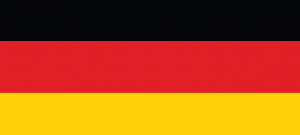Difference between revisions of "Language/German/Vocabulary/Introducing"
m (Quick edit) |
m (Quick edit) |
||
| Line 1: | Line 1: | ||
[[File:learn-german-polyglot-club2.jpg|thumb]] | [[File:learn-german-polyglot-club2.jpg|thumb]] | ||
Hello everybody, | Hello everybody, | ||
| Line 9: | Line 8: | ||
Feel free to edit this page by adding new words and expressions ! | Feel free to edit this page by adding new words and expressions ! | ||
Happy learning ! :) | |||
With a firm understanding of this material under your belt, you may be inclined to examine these connected subjects: [[Language/Swiss-german/Vocabulary/Drinks|Drinks]], [[Language/Swiss-german/Vocabulary/Days-of-the-Week|Days of the Week]], [[Language/German/Vocabulary/Greetings|Greetings]] & [[Language/German/Vocabulary/How-to-Say-Hello-and-Greetings|How to Say Hello and Greetings]]. | |||
== '''Some words for Introducing yourself in German''' == | == '''Some words for Introducing yourself in German''' == | ||
{| class="wikitable sortable" | {| class="wikitable sortable" | ||
| Line 174: | Line 170: | ||
Good luck. Viel Glück. | Good luck. Viel Glück. | ||
== | ==Other Lessons== | ||
* [[Language/German/Vocabulary/Maps|Maps]] | * [[Language/German/Vocabulary/Maps|Maps]] | ||
* [[Language/German/Vocabulary/Vehicles|Vehicles]] | * [[Language/German/Vocabulary/Vehicles|Vehicles]] | ||
| Line 185: | Line 181: | ||
* [[Language/German/Vocabulary/At-Home|At Home]] | * [[Language/German/Vocabulary/At-Home|At Home]] | ||
* [[Language/German/Vocabulary/DEUTSCH-IM-DETAIL-2|DEUTSCH IM DETAIL 2]] | * [[Language/German/Vocabulary/DEUTSCH-IM-DETAIL-2|DEUTSCH IM DETAIL 2]] | ||
<span links></span> | |||
Latest revision as of 20:12, 26 March 2023
Hello everybody,
In today's lesson you will learn some useful vocabulary about ¨INTRODUCING YOURSELF¨ in German
Feel free to edit this page by adding new words and expressions !
Happy learning ! :)
With a firm understanding of this material under your belt, you may be inclined to examine these connected subjects: Drinks, Days of the Week, Greetings & How to Say Hello and Greetings.
Some words for Introducing yourself in German[edit | edit source]
| Nos | ENGLISH | PRONUNCIATION
ENGLISH |
GERMAN | PRONUNCIATION
BRAZILIAN PORTUGUESE |
BRAZILIAN
PORTUGUESE |
|---|---|---|---|---|---|
| 01 | I am Sofie. | ih kh been zoh fee | Ich bin Sofie. | iCH biin zo fii | Eu sou Sofie. |
| 02 | I am an
Android developer. |
ih kh been ah ihn
ehn droh ihd ehnt vi klehr |
Ich bin ein
Android Entwickler. |
iCH biin áin
endróid ent ví kler |
Sou desenvolvedor
de Android. |
| 03 | I am from
Iran. |
ih kh been ah oos
ih rahn |
Ich bin aus
dem Iran. |
iCH biin áus
dem i rán |
Eu sou
do Irã. |
| 04 | What's your
nationality? |
vaas ihst ee reh
nah tsih oh nah lih teht |
Was ist Ihre
Nationalität ? |
vaas ist ii re
na tsio na li tét |
Qual é sua
nacionalidade? |
| 05 | Where
are you from? |
voh hehr
kohm stih dou |
Woher
kommst du ? |
vo héer
komst du |
De onde
você é? |
| 06 | Are you male
or female? |
beest dou ah ihn mahn
oh dehr ah ih neh frah ou |
Bist du ein Mann
oder eine Frau ? |
biist du áin man ó dâr
áine fráu |
Você é homem
ou mulher? |
| 07 | What's
your job? |
vaas
ahr bye tehst dou |
Was
arbeitest du ? |
vaas
ar bái test du |
Qual é o teu
trabalho? |
| 08 | Good luck | feel glewk | Viel Glück | fiiL glyyk | Boa sorte |
When you want to introduce yourself in Deutsch, you need to use this words :
- I: Ich
- am: bin
- an / a : ein/eine -> ein for male & eine for female
Example :
- Ich bin Sofie.
I am Sofie.
- Ich bin ein Android Entwickler.
I am an Android developer.
- Ich bin aus dem Iran.
I am from Iran.
____________________________
- When you want to say "What's your nationality?" in German, we say "Was ist Ihre Nationalität?", I hope it works (LOL).
- More common, it's to ask "Where are you from?", in German "Woher kommst du?"
- "Are you male or female?" is "Bist du ein Mann oder eine Frau?"
- Also, you can use "Was arbeitest du?" for "What's your job?"
Good luck. Viel Glück.
Other Lessons[edit | edit source]
- Maps
- Vehicles
- Days of the Week
- Greetings
- Seasons
- Animal Sounds
- Animals
- Weather
- At Home
- DEUTSCH IM DETAIL 2
